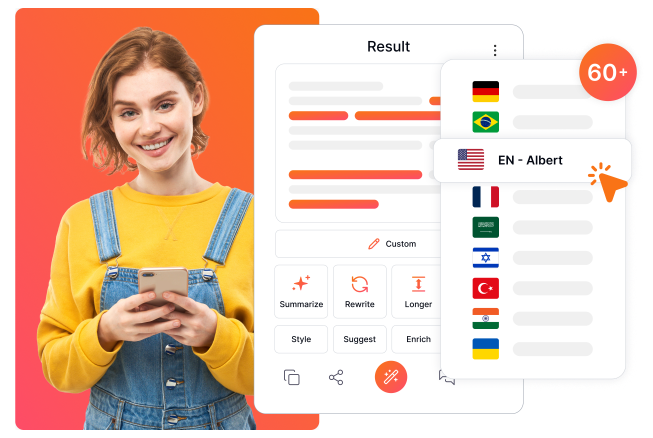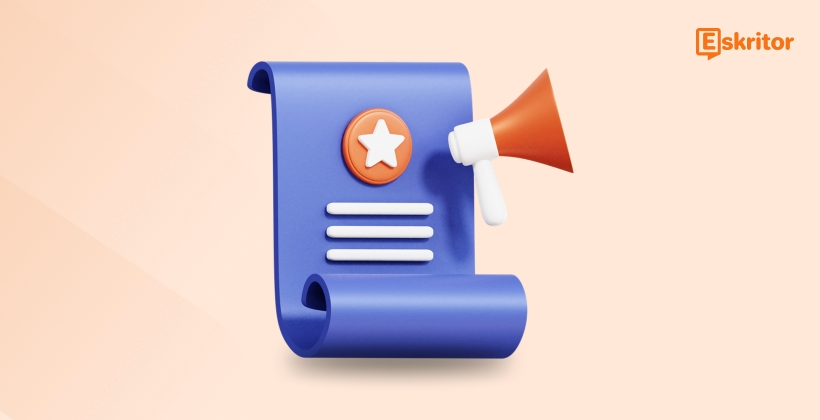The Future of AI Writing Technology Explained
The Future of AI Writing Technology Explained
Blog Article
Top AI Writing Tools to Boost Productivity
Artificial intelligence (AI) publishing technology has developed fast over the past decade, reshaping the way we produce and talk with written content. From grammar correction tools to AI-generated books, the options seem limitless. But where just is that engineering heading? Let's investigate the improvements, challenges, and potential future of AI writer.

How AI Publishing Technology Performs Today
At its primary, AI writing engineering utilizes Natural Language Control (NLP) and machine learning. These systems allow models to understand, produce, and increase human language. Resources available nowadays do well at jobs like:
1. Content Formation
AI has achieved a point wherever it may generate complete blog posts, social media marketing sayings, and actually news articles. Some types are capable of mimicking human publishing styles so successfully that distinguishing between AI- and human-written material is becoming increasingly difficult.
2. Grammar and Design Recommendation
AI-powered writing assistants don't just check always for grammar and punctuation mistakes; additionally they offer recommendations to boost tone, clarity, and syntax, creating complicated writing accessible to a broad audience.
3. Emotion Evaluation
AI may assess the emotional tone of a bit, allowing corporations to assess how their communications will resonate with readers. This really is particularly of use in marketing and customer interaction.
The Recent Traits in AI Publishing Engineering
Several tendencies are shaping the following period of AI-powered writing resources:
• Personalization
AI publishing technology is increasingly effective at tailoring material to personal preferences. Models can adapt to a user's writing type, ensuring the output thinks authentic.
• Multilingual Abilities
Many AI methods are increasing their worldwide achieve by offering enhanced translation functions and support for multiple languages.
• Enhanced Research Functions
AI tools now get the capability to analyze substantial levels of information and present fact-checked, well-researched publishing in seconds, simplifying the procedure for professionals in industries like legislation, finance, and journalism.
What the Future Holds for AI Publishing Technology
1. Increased Creativity
While recent AI is successful at generating material, their creativity remains restricted to habits within their teaching data. Potential AI is not just expected to aid but to produce unique, insightful operates that problem human imagination.
2. Seamless Relationship
Envision an AI that performs along side you in real-time, completing your phrases, performing live edits, and also brainstorming ideas. AI publishing methods might soon become co-authors, enabling creativity to movement uninterrupted.
3. Moral and Available Style
With rising issue about plagiarism, misinformation, and tendency, designers will work toward more transparent AI teaching processes and moral implementation. Potential tools will likely provide more detailed citations and steps to make certain accountability.
Issues and Factors
The evolution of AI publishing engineering isn't without hurdles, including:
• Moral Dilemmas

Who possesses content developed by AI? Just how can we guarantee AI-generated content is not spreading misinformation? These debates stay unresolved.
• Human-AI Balance
Will AI complement individual imagination or completely change particular roles? Many authors and artists concern yourself with their relevance in an AI-driven world.
• Supply Divide
Not totally all companies or regions have similar usage of cutting-edge AI instruments, increasing questions in regards to the influence with this engineering on international inequality.
Changing the Way We Create
AI writing engineering is still in their infancy compared to its potential. Whether you're students creating documents, a content marketer targeting unique readers, or perhaps a author seeking motivation, AI tools can continue to revolutionize the writing process. Another decade promises breakthroughs that combination human ingenuity with device intelligence, developing a potential where writing is more effective, accessible, and impactful than actually before.
Report this page